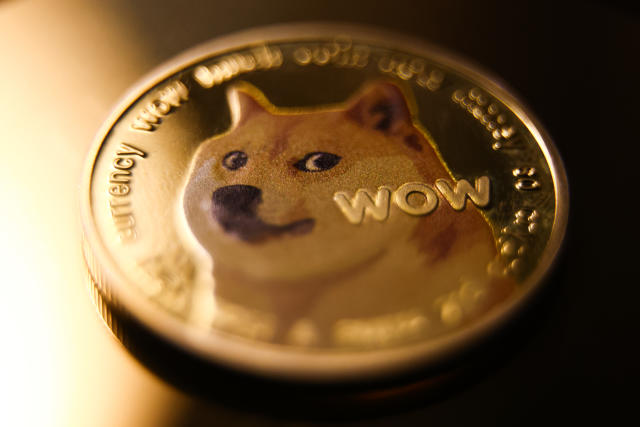Cryptocurrencies have transformed the financial landscape, offering decentralized, digital alternatives to traditional fiat currencies. At the forefront of this revolution are Bitcoin and Dogecoin, two digital currencies that, despite their different origins and purposes, have captured the imagination of investors and enthusiasts worldwide. This article explores the intricacies of these cryptocurrencies, shedding light on their unique features, market dynamics, and the intriguing interplay between them. Always aim to learn how to protect your bitcoin.
Bitcoin: The Pioneer of Cryptocurrency
In 2008, an anonymous entity under the pseudonym Satoshi Nakamoto introduced Bitcoin to the world. It was a novel idea: a decentralized currency, free from government control, and based on a secure, transparent ledger called the blockchain. Miners, using powerful computers, validate transactions and add them to this blockchain, ensuring the integrity and security of the entire network.
Over the years, Bitcoin has grown exponentially, both in terms of value and adoption. It has challenged traditional financial systems, offering a new way of thinking about money and transactions. Its fixed supply of 21 million coins, deflationary nature, and decentralized design have made it a popular choice among investors looking for an alternative to fiat currencies.
Dogecoin: From Meme to Millionaire Maker
In stark contrast to Bitcoin’s serious and revolutionary ethos, Dogecoin began in 2013 as a playful experiment. Created by Billy Markus and Jackson Palmer, it was based on the popular “Doge” meme featuring a Shiba Inu dog. Despite its humorous beginnings, Dogecoin quickly garnered a strong community of supporters and became a significant player in the cryptocurrency world.
Dogecoin’s blockchain operates similarly to Bitcoin’s, but with key differences such as faster transaction times and an unlimited supply of coins. Its lighthearted nature and active community have made it a popular choice for tipping and small transactions online.
Comparing Bitcoin and Dogecoin
While both Bitcoin and Dogecoin utilize blockchain technology, they differ significantly in terms of market capitalization, transaction speeds, and community culture. Bitcoin, with its larger market cap and more significant adoption, is often seen as a store of value, akin to digital gold. Dogecoin, on the other hand, is prized for its fast transactions and strong community, often used for smaller, everyday transactions.
Despite these differences, both currencies have experienced significant price volatility, a common trait in the cryptocurrency world, influenced by market demand, investor sentiment, and broader economic factors.
The Interplay Between Bitcoin and Dogecoin
The relationship between Bitcoin and Dogecoin is complex, with market movements in one often influencing the other. Bitcoin’s dominance and larger market cap mean that its price movements can have a significant impact on the broader cryptocurrency market, including Dogecoin. Conversely, the rise of Dogecoin, often driven by social media and celebrity endorsements, can also influence market sentiment and prices.
This interplay highlights the interconnected nature of the cryptocurrency world, where the fortunes of one can have ripple effects across the entire market.
Challenges and Criticisms
Despite their successes, both Bitcoin and Dogecoin face significant challenges. Scalability issues, environmental concerns due to energy-intensive mining processes, price volatility, and security vulnerabilities are all pressing issues that need addressing. Furthermore, the public’s perception of cryptocurrencies as speculative investments and the media’s portrayal of their price movements can also impact their adoption and stability.
Future Outlook: What Lies Ahead
As we look to the future, the role of technological advancements, market trends, and institutional investors will be crucial in shaping the trajectory of both Bitcoin and Dogecoin. Continued innovation, coupled with increased adoption and regulation, could lead to greater stability and acceptance of cryptocurrencies as a legitimate form of currency and investment.
However, the potential for further collaboration or divergence between Bitcoin and Dogecoin remains an open question, with the sustainability and long-term viability of both digital currencies dependent on a myriad of factors.
Conclusion: Summing Up the Journey
Bitcoin and Dogecoin represent two fascinating facets of the cryptocurrency world. From Bitcoin’s revolutionary impact on finance to Dogecoin’s unexpected rise from meme to millionaire maker, their stories are a testament to the unpredictable and dynamic nature of digital currencies. In this journey, many have found value in exploring various avenues within the crypto space, emerging as a noteworthy option for those looking to navigate the intricacies of cryptocurrency investments. As we navigate this evolving landscape, staying informed and engaged with the crypto community will be crucial in understanding and shaping the future of these digital assets.
